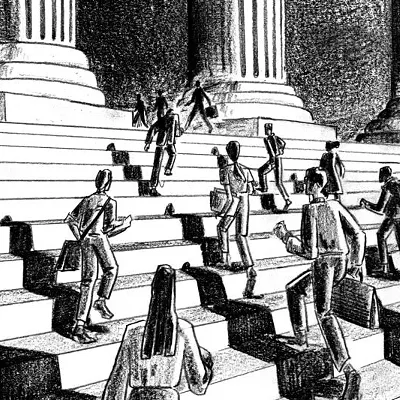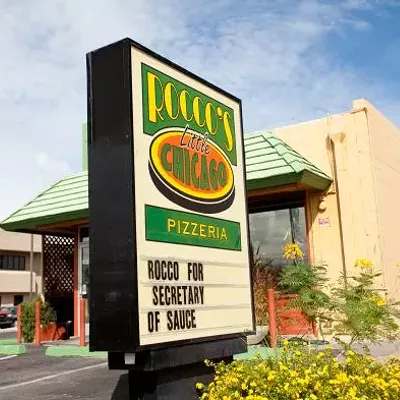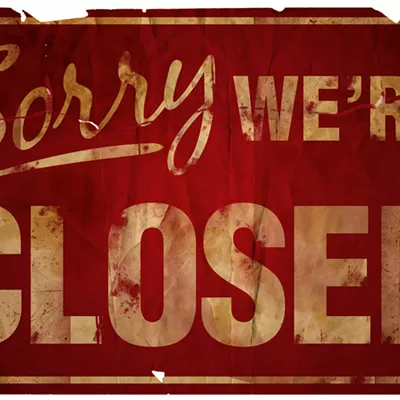Smoke and Mirrors
Prop 203IN THE LAST SIX years, the voters of Arizona have twice overwhelmingly approved allowing seriously ill people to use medicinal marijuana. But because of the federal government's so-called war on drugs, legal distribution of marijuana to cancer and other patients has been blocked.
Citizen initiative 203 has two main sections. The first would charge those caught possessing less than two ounces of marijuana for personal use with a monetary fine, not jail time. It would concurrently increase by 50 percent the maximum sentence for those committing violent crimes while under the influence of drugs.
In addition, passage of the proposition would legally lump possessing drug paraphernalia together with having marijuana. This is intended to prevent overzealous prosecutors from using a language loophole to criminally go after small-time users for having related equipment instead of the dope itself.
The second portion of the proposition addresses the distribution of medical marijuana. Each month the state's Department of Public Safety would provide two ounces to people who have been given a "valid, written documentation" by their physician. This statement must conclude the use of marijuana "may mitigate the symptoms or effects of the person's debilitating medical condition."
This proposal has outraged among law enforcement agencies and other anti-drug warriors. Joe Garagiola, Jr., general manager of the Arizona Diamondbacks, is heading the opposition to 203. If it passes, he warns, "kids will view marijuana as a non-harmful substance and drug use among kids will increase."
Josh Burner, spokesman for those pushing the proposition, calls that an unproven argument. He points out that only qualified people will receive the drug under the terms of the proposition. "To get it, you have to have a disease," he says.
To help with his medical condition, military veteran Burner now has to pay $200 a month to illegally obtain marijuana on the street. After three surgeries and other procedures for his tongue and palate cancer, Bruner concludes, "Medicinal marijuana is the best thing for the nausea" caused by the treatments.
Prop 302
AS A COUNTER-MEASURE to the penalty provisions of 203, the Legislature has included this proposition on the ballot. It would allow probation instead of jail time for first-time offenders charged with possession of drug paraphernalia.
Opponents call this a sneaky tactic intended to help defeat 203, arguing that their proposition addresses the issue in a comprehensive manner more consistent with past voter-approved measures. They also indicate that current law provides for probation and rehabilitation for drug users until the third conviction, but it is the prosecutors who have gone after these same people seeking jail time for those caught possessing drug paraphernalia.
Prop 303
NOT NEARLY AS controversial because it only affects the shunned part of our society who smoke cigarettes and other legal tobacco products, this measure would more than double the state tax on a pack of cigarettes to $1.18. It would also substantially raise the tax on other tobacco products.
The $140 million or so of new annual state revenue this tax is expected to generate would be divided up several ways. The most, 69 percent, would help pay for medical coverage for the poor. Another 20 percent will reimburse hospitals for bills they get stiffed on or to provide primary or trauma care services. So if this proposition passes, Tucson can thank smokers for helping to keep its endangered trauma care facilities open.
Another 5 percent of the funds will go for research into tobacco-related illnesses and 4 percent to make up for revenues lost to other state accounts due to the decrease in smoking expected to result from the higher taxes.
Finally, two cents of each new tax dollar will be used to detect and prevent the four leading causes of death in the state: cancer, stroke, heart and pulmonary disease.
Learning Curves
Prop 101ARIZONA HAS MORE THAN 9 million acres of land held in trust, the sale of which generates money for school districts. A 1990 Arizona Supreme Court ruling determined that the state did not have the power to exchange this property with other landowners. Since then, voters have turned down attempts to lift that restriction four times.
The current proposal allows the trade of state trust land for other government-owned property of equal or greater value. It also requires that the "purpose of the exchange is to conserve open space on trust lands offered by the state in the exchange."
Hoping that the fifth time is the charm, supporters point to the possibility of increasing revenues for the state's cash-strapped school districts. They also think passage of the measure will promote conservation goals.
Lori Faeth, director of government relations for The Nature Conservancy's Arizona chapter, says the group supports the measure because it can be a helpful conservation tool in addressing the checkerboard pattern of land ownership of public lands.
But four other major environmental organizations disagree. They believe the wording of the proposition will allow the state to trade land which will then have only a small portion retained as open space, with most made available for new development.
Randy Serraglio, conservation outreach director for the Arizona League of Conservation Voters, calls the measure "disastrous." He says when the federal government gets involved with land exchanges with the state, "odds are there will be a rip-off of the taxpayers. This proposition is just a scam waiting to happen."
Prop 300
ANOTHER SCHOOL-RELATED measure, Prop 300 would prevent the legislature from diverting the enormous sums of money raised by the sale of state trust lands away from education. Rather than throwing these funds into the school pot to increase it, politicians could instead remove a similar amount of general fund money from the budget so that the net gain for education would be zero. Passage of 300 would prevent that from happening.
Prop 400
PIMA COMMUNITY COLLEGE is seeking a budget override which will permit its secondary property tax rate to go as high as 42 cents per hundred-dollar valuation. If approved, this measure would raise an additional $8 million annually and be in effect for seven years.
The college, which serves more than 80,000 students, says it will use the money for technology improvements, classroom equipment and employee compensation. Another 15 percent would be set aside for a fiscal "rainy day" fund.
Caught in the same budgetary crunch as most governmental agencies with shrinking state monetary support and dramatically rising health care and retirement costs, Pima is turning to the voters for help.
If this proposition is approved, the owner of a home assessed at $100,000 (which in reality would retail for around 50 percent higher than that) would at first pay an estimated $15.50 more a year in secondary property tax for PCC. This difference would increase slowly over time as current construction bonds are retired.
The college's secondary tax is on top of the primary taxes it collects. Those funds, used for operating expenses, are about three times as great as the secondary tax.
Screw-Ups
Prop 104ALSO RELATED TO school-district funding, this proposition seeks to fix a problem with the wording of the .6-cent education sales tax increase approved by the voters two years ago.
Under current law, the money distributed from that tax has to be counted against the state-imposed maximum which can be spent by a school district. Without passage of this new measure, potentially the increased tens of millions of dollars for education authorized in 2000 would be collected but couldn't be used.
Prop 102
TWO YEARS AGO, THE voters of Arizona also approved a property tax freeze for qualifying senior citizens. Since that time, more than 500 older households in Pima County have taken advantage of the provision.
But unclear wording left in doubt how high the income of these elderly people could actually be in order to qualify for the program. This measure settles that dispute, setting the income limit for this year at $32,700 per household.
Paycheck Politics
Prop 304ARIZONA STATE LEGISLATORS now make $24,000; the Commission on Salaries for Elective State Officers has recommended it be increased to $36,000. Fortunately, voters have the final say.
Miscellaneous
Prop 100CURRENT LAW LIMITS the amount that Arizona cities and counties can sink into debt with general obligation bonds paid off by secondary property taxes. For many issues it is 6 percent of the total taxable value of all property; for others, 20 percent.
This measure would shift road projects from the 6 percent to 20 percent category. The change probably won't make any difference to Tucson residents; the city currently doesn't use general obligation bonds to pay for street projects and, given its tight budget situation, it probably won't in the future, either.
Prop 103
FIRST PROPOSED BY a 13-year old, passage of this proposition would throw those charged with sex offenses together with murder suspects in denying them bail if the presumption of guilt is great. This would be in addition to an already existing law under which bail can be denied to someone "who poses a substantial danger to any other person or the community and no condition of release will reasonably assure the safety of the other person or community."
Prop 301
OPPONENTS CALL THE Arizona state lottery state-sponsored gambling. Supporters call the program an important source of revenue for much-needed environmental and historic preservation programs. The lottery is presently slated to go away on July 1 of next year, but this proposition would extend its life until 2012.










